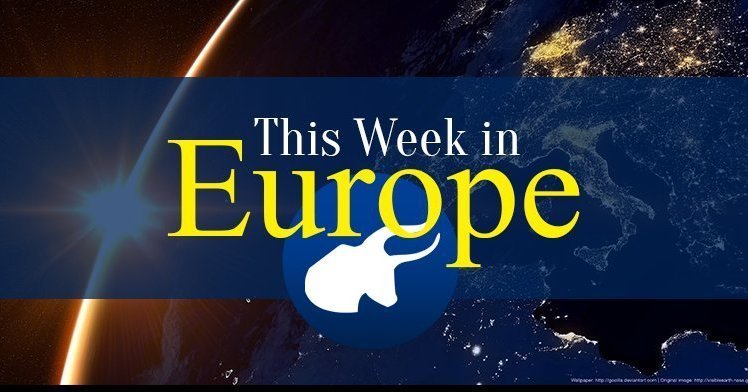Poland and Hungary speak against posted workers rules
Poland and Hungary, two states with large outflows of workers, have directed a complaint to the European Court of Justice over an EU directive that aims to tackle low-wage competition between member states. Under the new law, “posted workers” would be given more rights and their employer would have to pay the minimum wage of the country where the workers are based, not their country of origin. While Hungary and Poland’s governments complain that this is a form of protectionism, Western European states, led by France, are keen on the idea as they hope it will alleviate concerns among their voters about posted workers being used by employers to undercut wages. The ECJ challenge notwithstanding, member states have to incorporated the directive into national law by the end of July 2020.
Romania at centre of new rule of law dispute in Europe
European Commission officials have clashed with Romanian Prime Minister Viorica Dăncilă over the rule of law. Romania has been under special supervision in this area since it joined the EU but the Commission has concerns that the country may be going backwards. Changes to Romania’s laws are seen as threatening the independence of the judiciary and undermining the fight against corruption. Alarm bells rang earlier this year when the government dismissed the chief anti-corruption prosecutor, in what was widely seen as a political attack on the position after a number of high-profile politicians were convicted of corruption charges. The centre-right EPP has looked to push attention onto the case of Romania, which has a Social Democrat government, in an effort to minimise the criticism they face for protecting Viktor Orban’s government.
Different-sex civil partnership allowed in England and Wales
UK Prime Minister Theresa May has announced that the country’s legislation will be changed in order to allow any couple to have a civil partnership. Civil partnerships were originally introduced as an alternative form of union, recognised by the state, for same-sex couples before the legalisation of gay marriage. Calls for civil partnership to be expanded to all couples have existed almost from the start as not all different-sex couples believe in marriage. In June of this year, the UK Supreme Court ruled that it was in breach of the European Convention on Human Rights for different-sex couples to not be allowed civil partnerships. This campaign particularly picked up pace after the legalisation of gay marriage. This new change would ensure total equality between same-sex and different-sex couples, regardless of whether they want to get married or have a civil partnership.
MEPs back quota for European Netflix content
MEPs have backed a proposal for online media platforms such as Amazon or Netflix to ensure that at least 30% of their content is European. This forms part of the new Audiovisual Media Services Directive and was approved by MEPs 452 votes to 132. The new rules also include a ban on content that incites violence, hatred or terrorism as well as limits on pornographic television. Between the hours of 6am and 6pm advertising will also be limited. It will be up to the providers themselves to implement the new rules. The proposal still needs to be approved by the Council before becoming law and some lobbyists are hoping that national ministers will cut out some of the more restrictive aspects of the law.
Roads blocked in Catalonia on referendum anniversary
Protesters blocked roads and railways in Catalonia in order to mark the anniversary of the illegal independence referendum. A network of groups, the Committees for the Defence of the Republic, organised the event as part of their mission to promote the legitimacy of the 2017 vote which delivered a very high vote in favour of independence amid low turnout and boycotts from the opposition. As well as diverting traffic, banks were covered in pro-independence stickers and one high-speed railway linking to France was blocked. Though the Catalan Parliament backed a unilateral declaration of independence after the vote, it failed to go through with any serious measures while the Spanish government effectively temporarily ended Catalan autonomy. Catalonia’s new government, still in favour of independence, has called on the new Spanish government once again for a legal independence referendum.
ECJ backs law enforcement over data acquisition
The European Court of Justice has ruled that member state law enforcement authorities can access individuals’ personal information held by telecoms companies under certain conditions. The court ruled that privacy rights must be upheld but that accessing basic information such as an address or phone number in order to investigate minor crimes is justified. The ruling extends this practice to “non-serious” crimes just as phone theft.
Uncertainty over Macedonia name deal
The future of the name deal for the Macedonia (FYROM) now hangs in the balance after a referendum to approve the plan failed to reach the required turnout. Though 91% of voters approved the deal, only 36.9% of the country’s electorate went out to vote. It was hoped that the deal would end the decades-long dispute with Greece and open up the possibility of NATO and EU membership for the state. The future of the deal now rests with parliamentarians who will need two-thirds of votes in order to pass the necessary constitutional changes. Though pro-deal parties can likely get near that threshold, they will need to win over some more supporters if the deal is to pass.



Follow the comments: |
|
